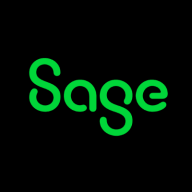

Sage CRM and Microsoft Dynamics CRM compete in the CRM software category. Based on feature offerings and integration strengths, Microsoft Dynamics CRM appears to have an edge, especially with its comprehensive feature set and ease of use within the Microsoft ecosystem.
Features: Sage CRM is recognized for effective opportunity management, case management capabilities, and excellent financial features. It offers a comprehensive tracking system for staff and customer activities and integrates well with Microsoft Office 365. Microsoft Dynamics CRM is known for its high customization and robust integration with other Microsoft products. It reliably supports both sales and service processes with a comprehensive range of features and delivers strong reporting capabilities. Its usability and seamless integration within the Microsoft ecosystem are additional strong points.
Room for Improvement: Sage CRM could benefit from enhancements in email and social media integrations, improved dashboard functionality, and a more modern user interface. API synchronization and the need for better analytics features are also highlighted areas needing attention. Microsoft Dynamics CRM requires improvements in mobile integration and a more intuitive user experience. Users also desire a streamlined dashboard, more detailed integration documentation, and advanced customization options, along with enhancements in user-friendliness and responsiveness.
Ease of Deployment and Customer Service: Sage CRM offers flexible deployment options through on-premises, private, and public cloud solutions, supported by responsive customer service and an extensive knowledge base. Microsoft Dynamics CRM provides diverse deployment options, such as public and hybrid cloud solutions. It ensures quality customer support, matching Sage CRM with effective deployment strategies and customer service capabilities.
Pricing and ROI: Sage CRM is moderately priced, offering annual licenses that promote good ROI through improved data access and reporting. Some users find the pricing steep, particularly in specific regions. Microsoft Dynamics CRM is generally considered expensive, typically offering enterprise-level packages with user-based licensing. Despite its cost, it delivers comprehensive functionality and superior integration, with some users concerned about its affordability for smaller businesses. Both systems show a positive impact on ROI, though pricing remains a consideration.
I recommend that those considering Microsoft Dynamics CRM conduct an ROI exercise to determine scalability and complex business needs because it is indeed a fantastic tool, especially if Microsoft can provide a better commercial model, which can significantly impact cost-effectiveness.
I would rate customer support as ten out of ten.
Microsoft is supportive of any problems they encounter.
While the support operates within their standard SLA, it can be difficult to speak directly with someone over the phone.
Microsoft Dynamics CRM is scalable; it's easy to scale, but when customizations become extensive, maintainability can become challenging.
I would give it a ten out of ten for scalability.
Microsoft Dynamics CRM is highly scalable, rated at ten, even fifteen out of ten.
There have been instances where issues with Microsoft Azure have affected Dynamics due to the infrastructure layer.
I would rate it ten out of ten.
More use-case-oriented material should be provided to help users and implementers learn how to do more, faster.
Microsoft Dynamics CRM doesn't provide solutions that allow you to transform easily if you have a heterogeneous mix of technologies or if your contact center is on analog and you try to digitize it.
Microsoft Dynamics CRM needs improvement in simplifying the setup and configuration process, which can be relatively complex when we want all features to work properly.
Although it is a good tool, it is costly.
The pricing of Microsoft Dynamics CRM can be complex due to Microsoft's complicated licensing model.
Microsoft Dynamics CRM costs about $110 to $115 per user per month, following a recent price increase.
The backend storage integrates seamlessly with OneDrive, and the solution offers robust security features, including Azure integration, two-factor authentication (2FA), and comprehensive audit trails.
The most valuable feature of Microsoft Dynamics CRM is its integration with Outlook and other Microsoft products like Microsoft 365, which includes emails, Teams, and SharePoint.
With the Microsoft suite of products, they work together logically and well.
| Product | Market Share (%) |
|---|---|
| Microsoft Dynamics CRM | 2.5% |
| Sage CRM | 0.7% |
| Other | 96.8% |

| Company Size | Count |
|---|---|
| Small Business | 41 |
| Midsize Enterprise | 22 |
| Large Enterprise | 19 |
| Company Size | Count |
|---|---|
| Small Business | 3 |
| Midsize Enterprise | 3 |
| Large Enterprise | 2 |
Microsoft Dynamics CRM is a comprehensive customer relationship management solution that helps businesses streamline their sales, marketing, and customer service processes. With its user-friendly interface and powerful features, it enables organizations to effectively manage their customer interactions and drive business growth.
One of the key features of Microsoft Dynamics CRM is its sales automation capabilities. It allows sales teams to track leads, manage opportunities, and close deals more efficiently. The solution provides a centralized platform for managing customer information, enabling sales representatives to access real-time data and make informed decisions. It also offers tools for forecasting, pipeline management, and sales analytics, helping businesses optimize their sales processes and drive revenue growth.
In addition to sales automation, Microsoft Dynamics CRM offers robust marketing automation features. It enables marketers to create and execute targeted marketing campaigns, track campaign performance, and generate actionable insights. The solution provides tools for lead management, email marketing, social media integration, and customer segmentation, allowing businesses to engage with their customers effectively and drive marketing ROI.
Furthermore, Microsoft Dynamics CRM helps organizations deliver exceptional customer service. It provides a unified view of customer interactions, enabling customer service representatives to deliver personalized and timely support. The solution offers case management, a knowledge base, and self-service portal capabilities, empowering customers to find answers to their queries and resolve issues on their own. It also provides tools for service analytics and reporting, helping businesses identify areas for improvement and enhance customer satisfaction.
We monitor all CRM reviews to prevent fraudulent reviews and keep review quality high. We do not post reviews by company employees or direct competitors. We validate each review for authenticity via cross-reference with LinkedIn, and personal follow-up with the reviewer when necessary.